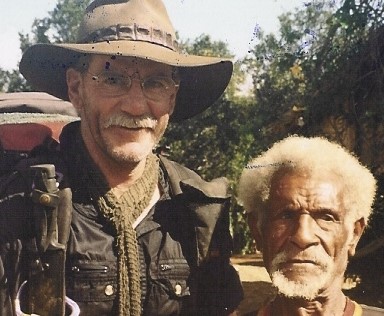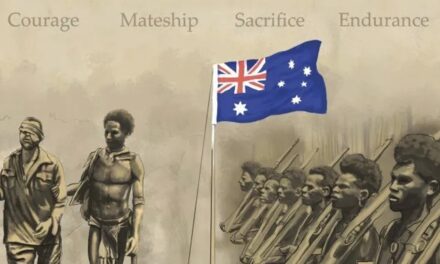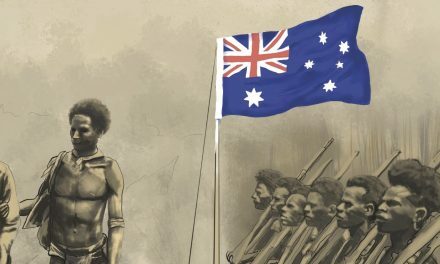Tribute to Mr Ovoru Indiki, Former ‘Fuzzy-Wuzzy Angel’ and Naduri Village Chief
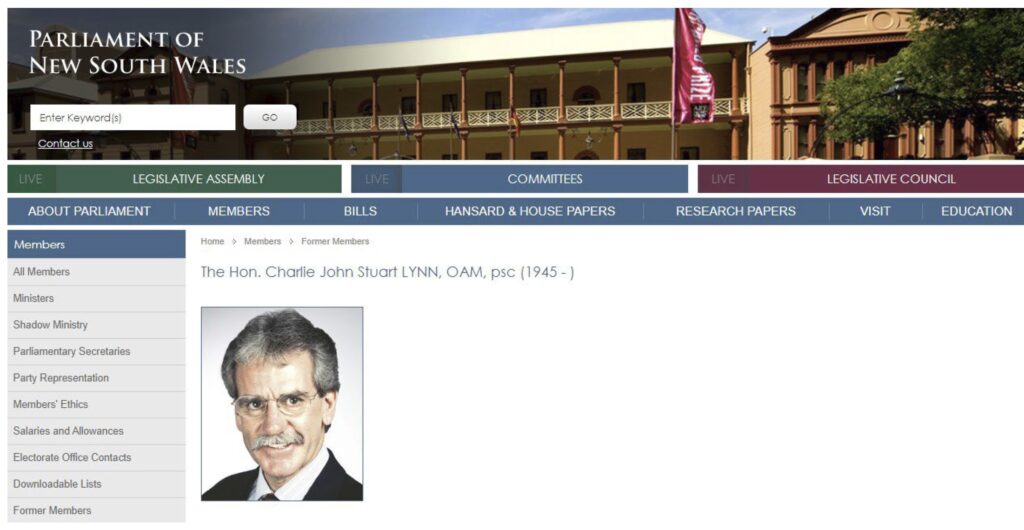
The Hon. CHARLIE LYNN (Parliamentary Secretary) [11.54 p.m.]:
‘Tonight in the New South Wales Parliament I pay tribute to Mr Ovoru Indiki, who passed away peacefully in the village of Naduri near the Kokoda Trail on 13 November.
‘Ovoru was a respected chief of Naduri village, which is about halfway along the Kokoda Trail. I believe he would have been in his early sixties when I first met him in 1991, however it is difficult to substantiate his exact age because of the lack of records in Papua New Guinea at the time of his birth. He would, therefore, have been in his late eighties or early nineties when he died.
‘Ovoru was a teenager when war came to Papua New Guinea with the bombing of Port Moresby in 1942. Like many Papuans at the time he did not understand what was happening and he fled back to the safety of his village high in the jungle-clad Owen Stanley Ranges. It was a long trek and he recalled to me that he was very frightened at the time.
‘When the war came to the Owen Stanley Ranges he was indentured by the Australian administration to help carry supplies forward to the Australian troops fighting on the Kokoda Trail. On the return journey Ovoru and his fellow Papuans often came across wounded Australian soldiers who could struggle no further—many of them lying face down in the mud. Ovoru and his friends would always stop, build a stretcher out of bush material and carry the wounded digger back to the medics at Ower’s Corner. It was a slow and tortuous journey that took up to three weeks over some of the most inhospitable terrain on the planet.
‘During these journeys they shared their meagre rations of rice with their stranger and slept either side of him at night to keep him warm.
‘Hundreds of our diggers survived as a direct result of their support and sacrifice. They were immortalised in the poem Fuzzy-Wuzzy Angels composed by Sapper Bert Beros whilst recuperating in the Sogeri field hospital “at the bottom of the track”.
‘After the war Ovoru was appointed village constable at Naduri under Australia’s colonial regime. In 1975 Papua New Guinea achieved independence from Australia and Ovoru Indiki was awarded an Independence Medal for services to his village.
‘To our great shame Ovoru, along with approximately 56,000 wartime carriers indentured to support the Australian war effort in Papua New Guinea from 1942 to 1945, have never been formally recognised by the Australian Government. We were hopeful that this wrong might have been rectified in 2010, but Ovoru and his people were shamelessly conned by a slick public relations stunt perpetrated by the Australian Government.
‘A select few were issued with a medallion to provide a few photo opportunities designed to placate those agitating for official recognition of their service. When the medal was first announced we were duped into believing their service as wartime carriers had finally been recognised. It took some time before we were able to examine the small print and realise it was not a medal with any official status; it was a medallion with no status.
‘For those who are not clear about the difference I should explain that a medal is something earned and awarded under our official honours and awards system. A medallion is something which is distributed in a Wheaties packet as a promotional gimmick and which does not have any official status.
‘Notwithstanding this shameful con, Ovoru Indiki’s presence in his native village of Naduri symbolised the service and sacrifice of his Koiari and Orokaiva villagers to the thousands of trekkers who had the good fortune to meet him and thank him.
‘Ovoru always had the presence of a chief. I recall when we brought him to Sydney and pushed him around the city in a wheelchair that every now and then he would beckon us to stop and he would stare at a building, a bus or a ferry at Circular Quay, the Harbour Bridge or the Sydney Opera House. I wondered how he was processing the wonders of a modern and bustling city. That night he told me, through his son, Andy, that his grandfather had told him that somewhere in the world there must be a great city and he hoped that one day Ovoru would get to see it. He smiled when he said, “Now I am here.”
‘He also told me that when he went back to his village he would tell the kids that if they worked hard at school some day they might get to come to Sydney.
‘My meetings with Ovoru over the years, and the awe and respect accorded to him by visiting trekkers, have certainly helped me keep things in perspective.
‘Ovoru is survived by six sons, Nelson, Mark, Jeffery, Ade, Andy and Gilbert, two daughters, Beatrice and Maliyn, 22 grandchildren and 12 great grandchildren. The world is a little poorer for his passing but Ovoru Indiki can now rest in peace knowing that his service and sacrifice, and that of his Koiari and Orokaiva people, will never be forgotten.
‘I pledge that we will continue to seek official recognition of the Papuan wartime carriers who helped us so selflessly in our darkest hour of need. I hope that one day in remote villages most Australians will never see a shining silver medal with a ribbon in combined Australian and Papua New Guinea national colours will take pride of place in a traditional hut once inhabited by a wartime carrier. It is the least we can do to honour Ovoru’s legacy and that of his people.’
Our Kokoda Day Proposal can be accessed on this link: ‘Kokoda Day’
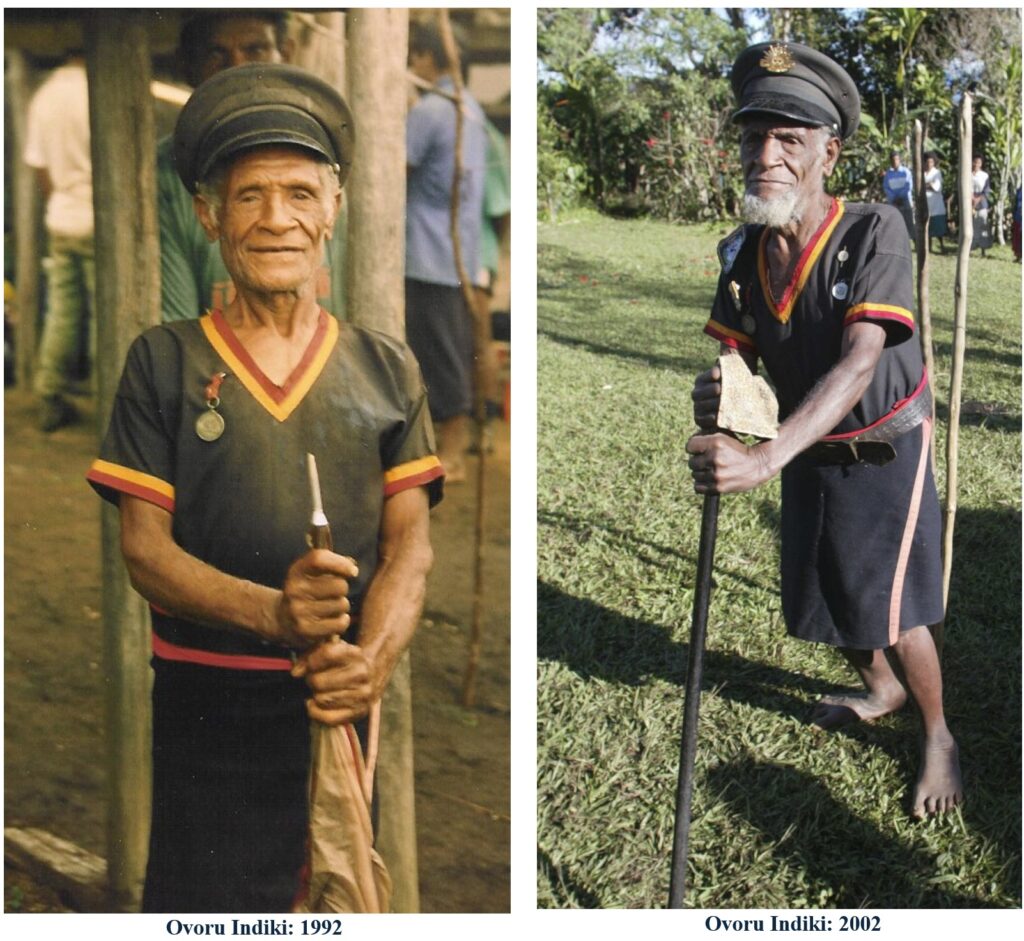

Charlie Lynn and Ovoru Indiki catching up in Nadur Villiage in 1992
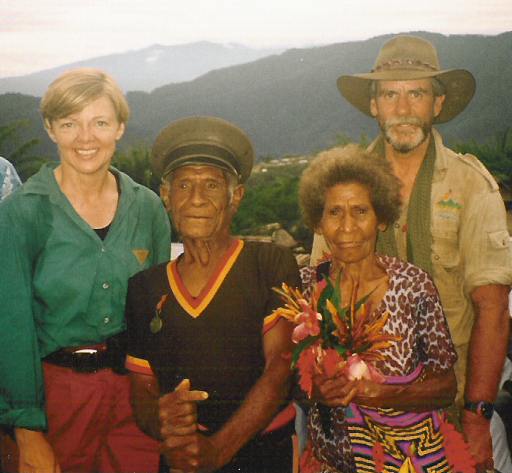
NSW MP, Kerry Chikarovski and Charlie Lynn with Ovoru Indiki and his wife in Naduri Village in 1996
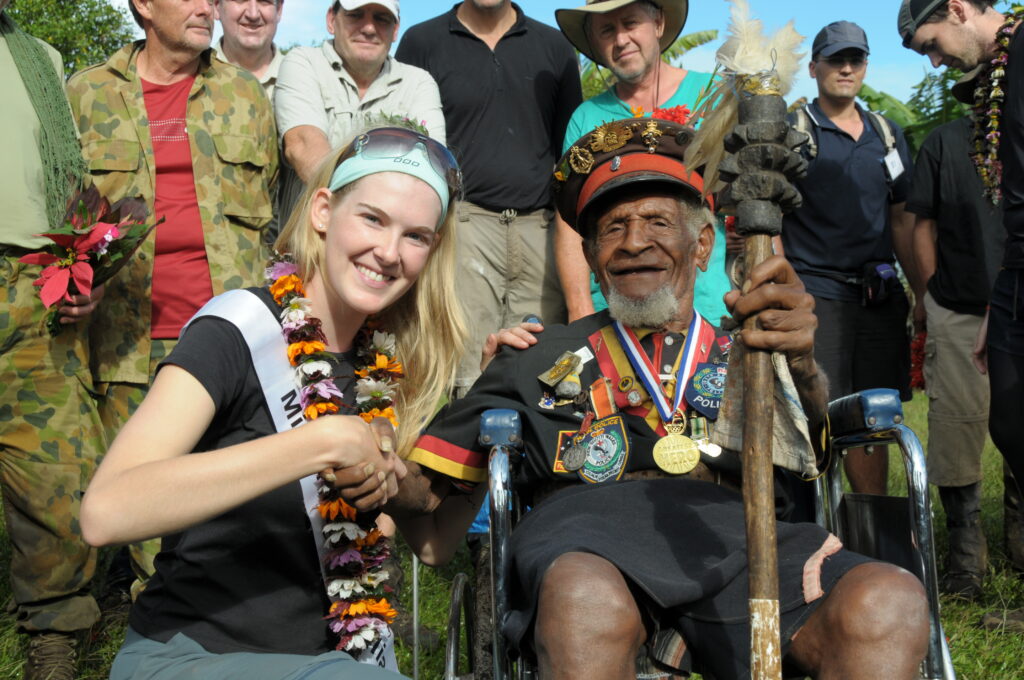
Ovoru with Australia’s Miss Universe, Caroline Pemberton
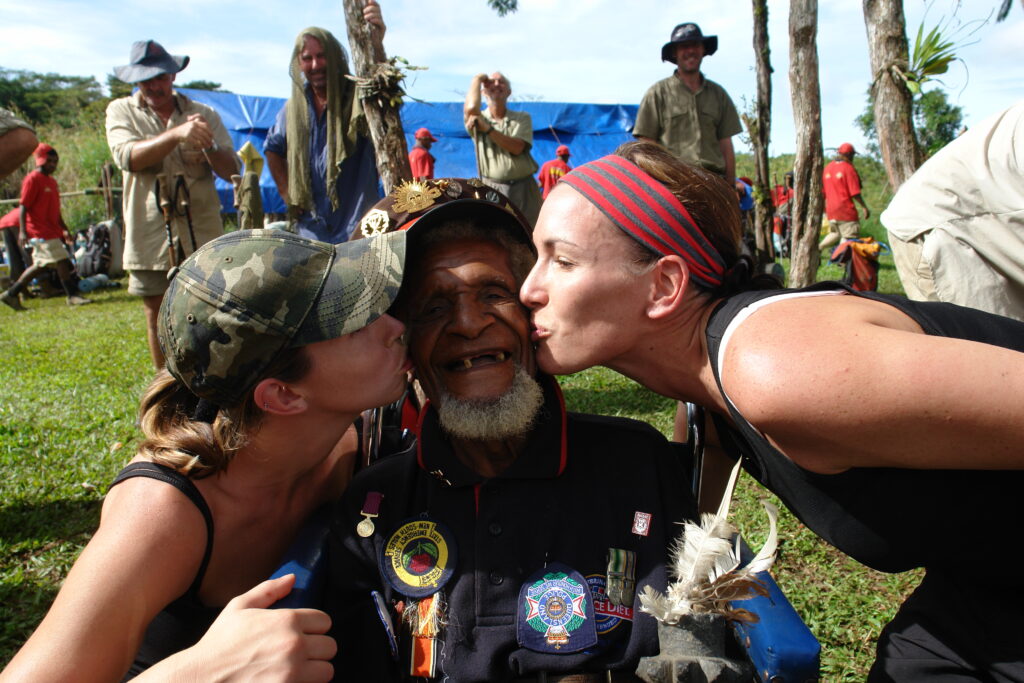
Trekkers found Ovoru irrestible
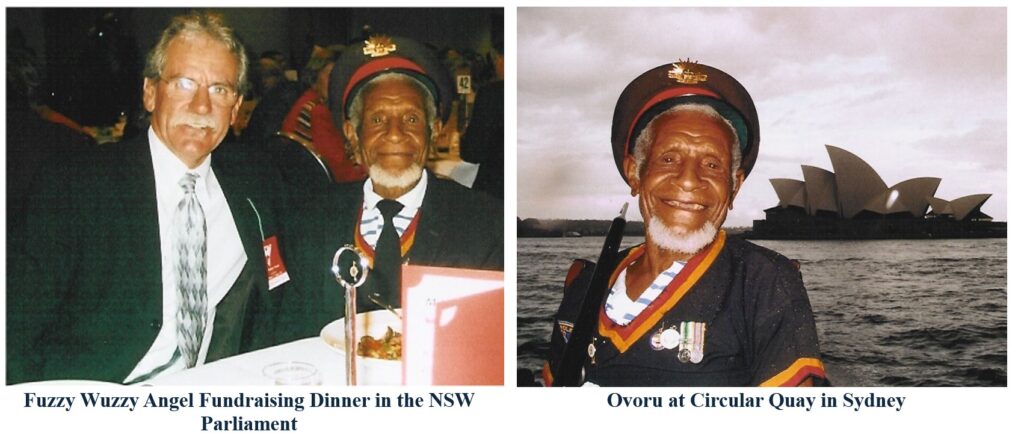

Peter Fitzsimons, author of ‘Kokoda’ shares time with Ovoru in Naduri Village

Ovoru at the Cenotaph in Martin Place, Sydney
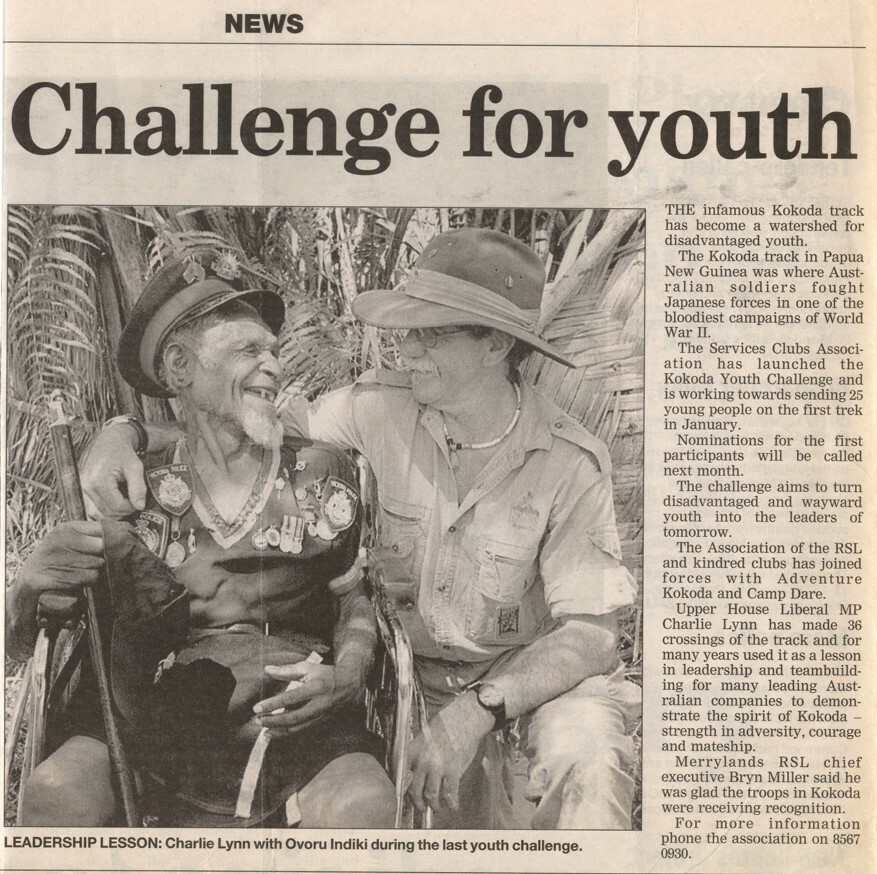
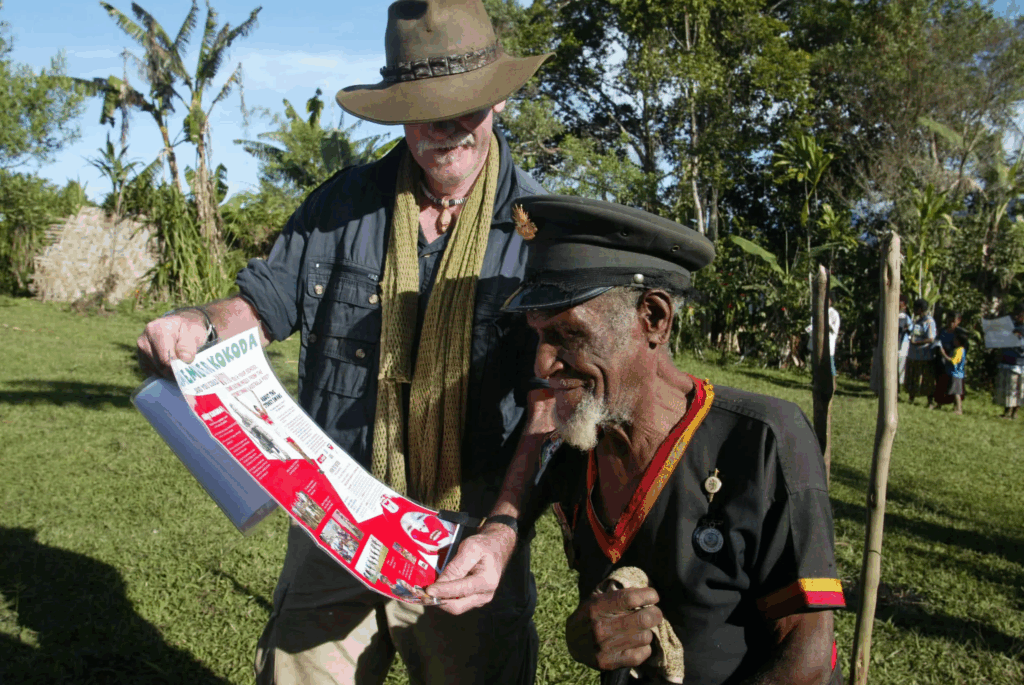
Charlie sharing a story on the Sydney Swans who met Ovoru on their previous trek
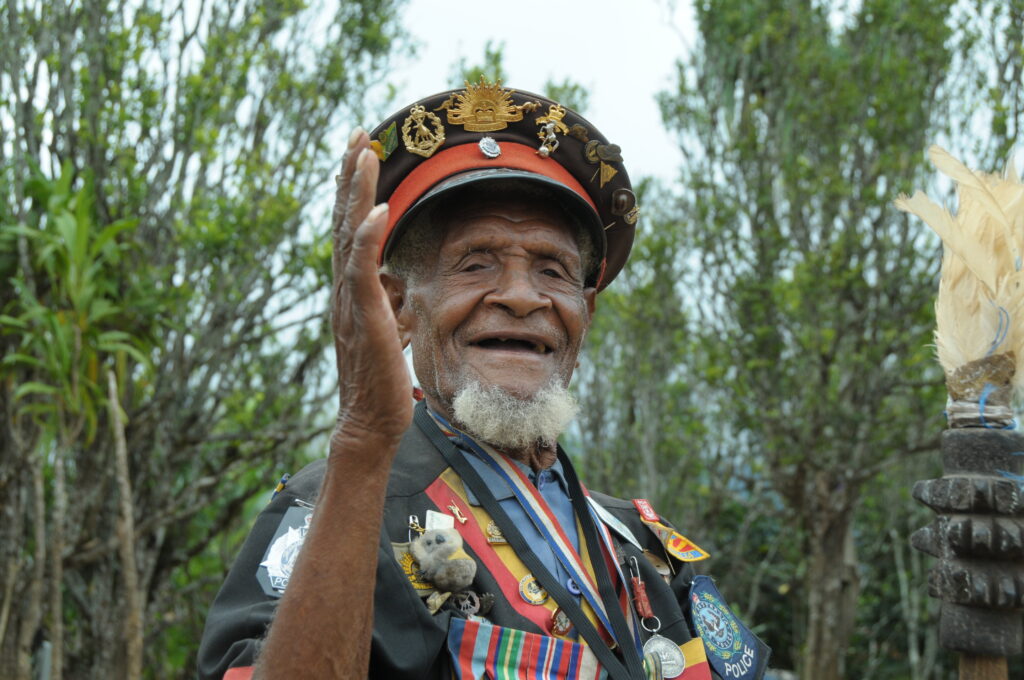
Farewell Ovoru – You duty has been nobly done.
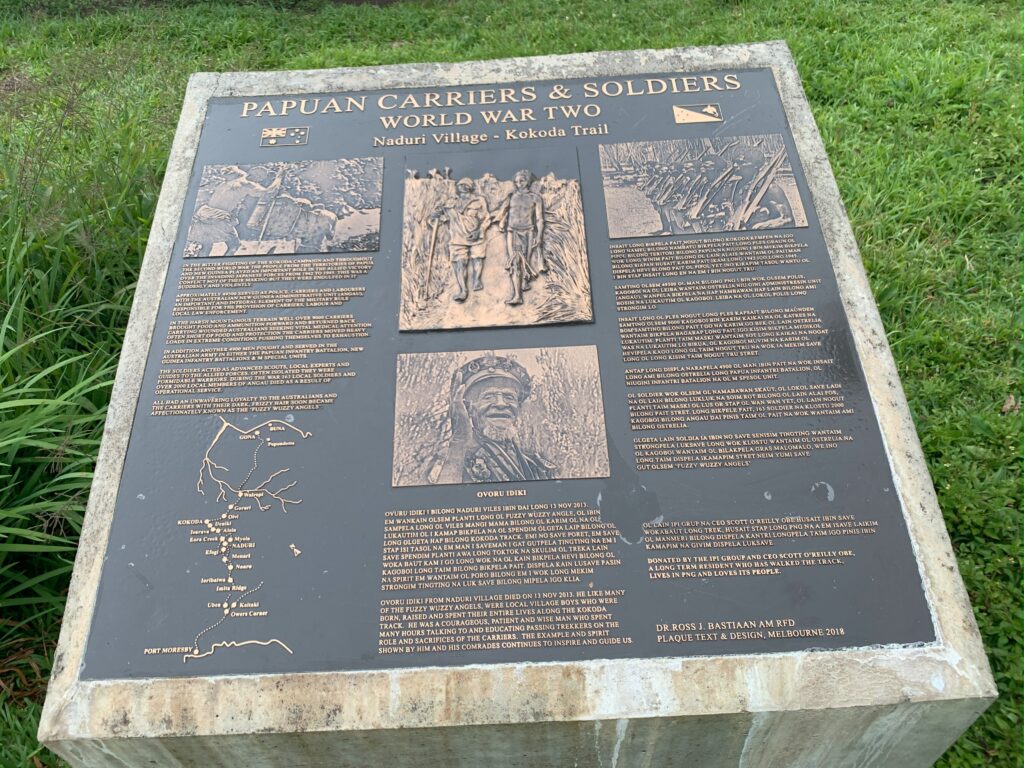
Ovoru Indiki’s Memorial Plaque in Naduri Village

